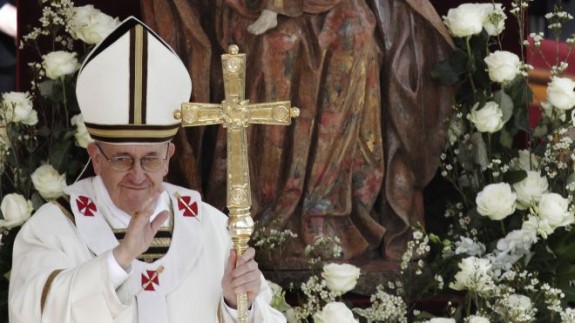The Pope is not just a leader; he is a religious leader who, precisely because of his religious vitality, has succeeded in touching human hearts. The Pope Francis phenomenon is a reminder, yet again, that spirituality and not secularity is the driving force of modern life; it is his spiritual intensity that sets him apart and that provides the best answer to the spiritual emptiness of our time.
It is simply impossible to understand the reactions of Americans to the Pope without recognizing the religious undercurrents that remain deeply embedded in American culture. Americans — whatever their religious affiliation, or lack thereof — sense his spiritual power. And that spiritual power is the key to comprehending his remarks on capitalism in Evangelii Gaudium: I read them not as a left-wing political platform, but as recognition that any society built solely on market values and individual effort will steadily erode the bonds of solidarity, morality, and trust that flow from a commitment to the sacred and a belief in God.
None of this should be taken to mean that we should embrace religious institutions and creeds as they are. Pope Francis, it seems to me, has caught the imagination of the American public by suggesting the opposite. I cannot say what his papacy will mean for the Catholic Church, but among the American people, he is seen as both deeply rooted in an ancient religious tradition while also open to retrieving and transforming old symbols and beliefs. And he has caught the attention of Americans, and especially young Americans, who affirm modernity but are amenable to a more spiritual way of perceiving the world.
Pope Francis is a man of incomparable gifts. All of us who do religious work in this country can learn from his example.











